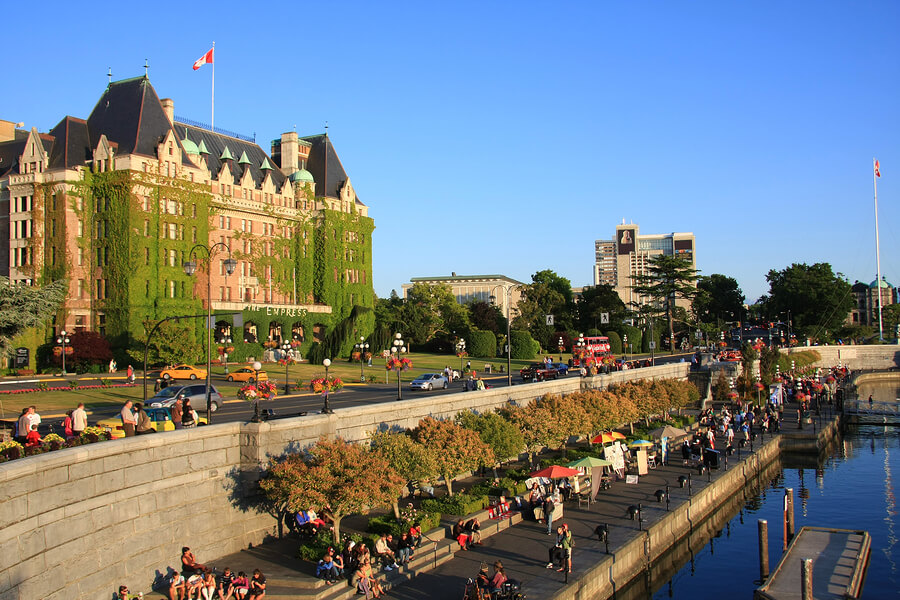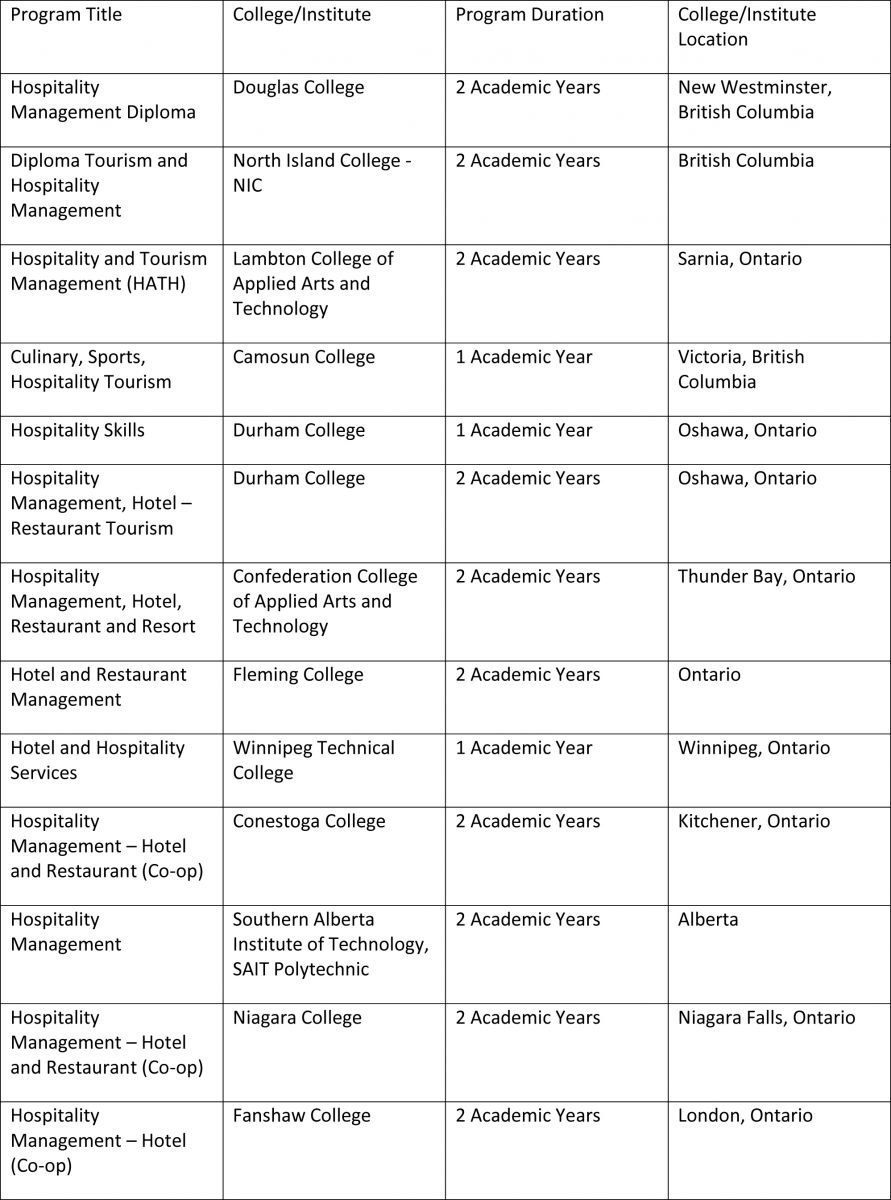CANADA has more than 265,000 international students. Would you like to be one of them?
In recent weeks we have been collecting your questions about study in Canada and putting them to a panel of education experts. Today we bring you their answers. Visas, tuition fees, entry requirements, MBAs, Law, scholarships - it's all here in this MASSIVE article!
.jpg)
1. Why should I study in Canada?
Ted Vaughan, Director Universities and Colleges for the Nova Scotia government:
Canada plans to double the number of international students by 2022. This means that we will be actively recruiting the best and brightest to study in our country over the next few years. Canada is multicultural nation and a very safe place to live and study, and we value education highly. Our universities are home to students from hundreds of different countries.
The best reason to take a chance on Canada is our excellent post-secondary education system. Nova Scotia, for example, has 10 universities, which offer a wide variety of programs. You can come to Nova Scotia to study anything from Arts and Sciences to Agriculture, Business, Computer Science, Dentistry, Engineering, Fine Arts, and Graphic Design, Medicine, or Law.
A number of our universities also have their own language schools, or are affiliated with a language school; this allows international students to improve their English language skills and more easily transition into a Nova Scotia university program. For more information on opportunities in Nova Scotia, please see the Edunova website.
Amit Chakma, President of Western University (London, Ontario), chair of 2012 Advisory Panel on Canada's International Education Strategy:
Every aspect of your Canadian higher education experience would be a positive one:
Western University in particular is so committed to providing a quality post-secondary experience that it guarantees its students (international and Canadian alike) will be able to choose the first-year courses necessary for their programs of enrolment, a place to live in residence and an overall extraordinary student experience along with automatic consideration for our admissions scholarships. Here are the full details and conditions of this guarantee.

Canadian Bureau of International Eduation:
Happy students: More than nine out of 10 respondents to our annual student survey said they were either satisfied or very satisfied with their experience in Canada and 96% would recommend Canada as a study destination.

2. What is the process for applying to a university in Canada? What do I need?
Use program finder tools such as this and this to draw up a shortlist of universities or colleges that offer programs in your chosen subject. Check they are "designated" institutions that are government-approved to host international students
Check their websites for admission requirements, tuition fees and scholarships, which vary from university to university You will almost definitely need an IELTS English score of at least 6.5, and you will need to prove you've got sufficient funding for your first year in order to apply for your student visa.
University of British Columbia (Vancouver and Okanagan):
Admission to Canadian universities is usually based mainly on previous academic achievement. Each university will list its specific requirements on its website, will typically have an online application system, and will generally require official copies of all previously completed academic transcripts. At the undergraduate level, most universities do not require much information beyond the high school credentials as well as proof of English or French language proficiency, depending on language of instruction at the university.
Studying abroad and need to transfer money? Try our trusted money exchange partner World Remit.
In some instances, additional information such as short essays, references, portfolio or auditions may be required but that is more rare than typical. In most instances, undergraduate applicants to Canadian universities are not required to submit tests that may be required by universities in the United States, such as the SAT or ACT.
Canadian Bureau for International Education:
Contact each university directly for the admission requirements of the program you’re interested in. Find a program and click on the name of the university for its website and contact information.For programs of study, see CBIE’s student portal database.
College and Institutes Canada:
Institution websites will usually provide admission requirements for international students. Use our Program Finder to help in your search for a program at a Canadian college that suits your interests or needs.
There are certain documents that you will need in order to apply, these include your acceptance letter, proof of identity and proof of sufficient funds to study in Canada. Proof of sufficient funds includes having enough money for tuition, living expenses for you and any family members that may be coming with you and return transportation for you and your family. Additional documents may be required; these may include a medical examination and a security check. The visa office can assist you.

Dr Amit Chakma, President of Western University (London, Ontario):
If you are applying to an undergraduate university program in Ontario, you will make application online by way of the Ontario Universities’ Application Centre.
Your application is forwarded to the universities on your list and those universities will follow up with you about any materials needed to complete the application process. Much of the process is digital, but there may still be a need for hardcopy official transcripts, examination results and proof of English language proficiency to complete the application.
Every applicant is unique and therefore the requirements for completing the application are likely to be unique too. Canadian universities will always have admissions and liaison officers available to assist you with questions you may have.
3. What are the English requirements (IELTS, TOEFL etc) for international students?
College and Institutes Canada:
The Degrees.ca website enables you to put in your IELTS or TOEFL score and find out which Canadian colleges and universities.will accept it. However, always check the results with the institution's website as English requirements can change. (Most universities expect you to have an overall IELTS score of at least 6.5 and most colleges expect you to have an overall IELTS score of at least 6.)
Dr Amit Chakma: President of Western University (London, Ontario):
At Western University, a minimum IELTS overall band score of 6.5 is required with no part less than 6.0. For TOEFL, the minimum score required on is 83 on the internet-based tests with no score below 20 (For the paper-based test: 550 with a 5 on the TWE). Additional tests and English Language programs are available. For more details, go to this webpage. It is also important to note that Canada is home to many French-language universities as well, which may be an option for some
4. How much does it cost to live and study in Canada?
Colleges and Institutes Canada:
Overall, Canada is a very affordable place to study. This website provides the general cost of living expenses in major cities across Canada.
Canadian Bureau for International Education:
The cost of living is higher for major urban areas such as Toronto, Vancouver and Montréal versus smaller municipalities. However student accommodation in some of the bigger cities may be as affordable as in smaller towns. When applying for a study permit, you are required to demonstrate that you have sufficient funding for your first year of study. We recommend the Education in Canada Step 1-2-3 tool for assessing your costs for living and tuition.

5. Besides tuition fees what do I have to budget for?
Dr Amit Chakma, President of Western University (London, Ontario):
Aside from accommodations or residence, books and academic supplies, students should consider costs associated with food or meal plans, clothing, transportation, phone costs, and personal recreation or entertainment. At Western University, students automatically receive a public transit pass, access to health services and free use of our large recreation and fitness centre. Our International and Exchange Student Centre provides helpful resources on money matters for students planning their transition to Western and life in Canada:
6. Can I work part-time during my studies?
Citizenship and Immigration Canada:
It is possible to work in Canada while you are here as a student. In some cases, you will need to apply for a student work permit. To find more please visit our website.
Canadian Bureau for International Education:
Students holding a study permit who are enrolled full-time in a publicly funded post-secondary institution can work part-time during the school year and full-time during scheduled breaks; conditions apply.
7. Is it possible to manage study costs by working part-time in Canada?
University of British Columbia:
It is not advisable to rely on earnings from part-time work to cover the majority of study and living costs in Canada. While Canadian institutions typically charge comparatively affordable fees, an education in Canada is still always a sizeable investment. Part-time work will allow the student to have some additional spending money, but will not be enough to cover tuition fees or even living costs. Additionally, international students are expected to be enrolled in full-time study, which means part-time work will be restricted to perhaps 10-15 hours per week.

8. How do I get a visa to study in Canada?
Citizenship and Immigration Canada:
To learn how to apply for a study permit, please visit our website.
You can also find out about Canadian study permits at Immigration Direct's website.
9. After completion of my degree I want to stay permanently in Canada. Can I do this?
Citizenship and Immigration Canada:
Yes it’s possible to apply for permanent residence. If you want to stay in Canada as a permanent resident after you graduate, there are a number of programs available, each with its own requirements. To find information on applying for permanent residence after graduation, please visit our website.
Colleges and Institutes Canada:
Graduates from a Canadian college/institution have in-demand skills, Canadian credentials and work experience which makes them strong candidates to apply for immigration. Two common immigration avenues for international graduates are: Canadian Experience Class and the Canadian Provincial Nominee program.
10. How easy is it to get a visa to stay in Canada temporarily after I graduate to get work experience?
Citizenship and Immigration Canada:
To work in Canada after you graduate, you must apply for a work permit under the Post-Graduation Work Permit Program (PGWPP). The PGWPP allows students who have graduated from a participating Canadian post-secondary institution to gain valuable Canadian work experience. Skilled Canadian work experience gained through the PGWPP helps graduates qualify for permanent residence in Canada through the Canadian Experience Class (CEC).
Find some stationery at Paperchase and make a stylish start to uni life.
A work permit under the PGWPP may be issued for the length of the study program, up to a maximum of three years. A post-graduation work permit cannot be valid for longer than the student’s study program, and the study program must be a minimum of eight months in length. For example, if you graduate from a four-year degree program, you could be eligible for a three-year work permit if you meet the criteria. If you graduate from an eight-month certificate program, you would be eligible for a work permit that is valid for no more than eight months. Get more information here.
.jpg)
11. Is it possible to get work experience in Canada without studying there?
Yes, but to work in Canada for any length of time, you will need a work permit. Here is how you apply.
12. Can you recommend me a program?
There are more than 1,000 universities and colleges in Canada that are allowed to host international students, of which almost 900 are in the popular provinces of Ontario, British Columbia and Quebec. Below are the top-ranked universities for the subjects that readers have asked about.
Accounting (ACCA):
Source: QS Rankings by subject
Biotechnology (Bachelor):
Computer science/ software engineering/ software development:
Source: QS Rankings by Subject.
Engineering:
Chemical engineering:
Electrical engineering:
MBA (Master of Business Administration):
Source: QS Top MBA Global 200 Business Schools Report 2013/2014
Of these, HEC Montréal, which was Canada's first business school when it opened in 1907, offers excellent value for money, with total tuition fees of US$32,200 and a required GMAT score of just 630. This is a 58-week program in English or French.
Psychology:
Source: QS Rankings by subject
MPhil in English:
Source: QS Rankings by subject
University of Toronto
McGill University
University of British Columbia,
York University
Université de Montréal
University of Victoria
Queen's University
University of Alberta
University of Calgary
University of Ottawa
Source: QS Rankings by subject

14. I want to do an LLM in Canada. How much money do I need?
Amit Chakma, President of Western University (London, Ontario):
If you were to choose the LLM program at Western University, and if you were offered admission, you would need to budget at a minimum CAD $27,000 for tuition and CAD $16,000 for non-tuition expenses. There is no substitute for consulting the Registrar’s website at each institution of your short list to check their current fee schedules in order to calculate a possible budget.
15. What are the entry requirements to study an LLM (Master of Laws) in Canada?
Student World Online
These vary from university to university. At the University of Toronto, applicants must have a Bachelor of Law (or equivalent - see list here), and preferably another undergraduate degree or demonstrated writing and research ability; a minimum TOEFL score of 600 or IELTS overall score of 7.5.
Amit Chakma, President of Western University (London, Ontario):
Check the requirements for each university on your short list. Western’s requirements for consideration to the LLM program are:
16. I want to study any technologically-related course in Canada. Any ideas?
Colleges and Institutes Canada:
There are lots of Canadian college and institute courses on technology, ranging from one year post-graduate certificates or diplomas to three or four year technology degrees and diplomas. �??The Program Finder found on the International Studies page can help you find colleges/institutions across Canada that suit your field of interest. Bear in mind, there are lots more programs that are not yet online here.
17. How can I study politics in Canada? I’m a 2nd year student at a college in Afghanistan.
Student World Online:
Below are the top universities to study politics and/or international studies. Check out the universities' websites for scholarships. The University of British Columbia offers the Donald A. Wehrung International Student Award which recognizes outstanding international students from impoverished or war-torn areas.
18. I want to do a diploma in interior design/kitchen/wardrobe making. Should I study in Canada?
Student World Online:
This program at Humber College or this one at North Island College on beautiful Vancouver Island might work for you.
19. I want to do a PhD in zoology. What's the process?
Student World Online:
The website Findaphd.com lists PhD opportunities.

20. I’m doing an HSc in Pakistan. Is it possible for me to do a BSc in Computer Science in Canada?
Amit Chakma, President of Western University (London, Ontario):
Yes, it is possible to apply for consideration to a BSc in Computer Science in Canada. At Western, we would recommend that Senior Level Calculus be one of the subjects included with the applicant’s Higher Secondary Certificate Examination (HSC), but it is possible to take calculus here as a first-year student if it is a prerequisite to other courses that are a part of the student’s intended undergraduate curriculum.
21. I have a 3-year diploma in civil engineering. Can I study in Canada?
Amit Chakma, President of Western University (London, Ontario):
You may certainly apply to study in Canada. Consider what you would like to study in Canada. Are you continuing on with civil engineering? Alternately, are you considering branching out into a new discipline? Once you have an idea of what you would like to study in Canada, you can double check with the AUCC database of Canadian programs to create a short list of institutions that you would like to learn more about.
22. We live in Bangladesh. My younger brother passed his Secondary School Certificate and Higher Secondary School Certificate in 2010 and 2012 respectively, in science. His grade point average was 4.69 and 4.70. He registered with the British Council recently and would like to study in Canada. My father has a FDR bank balance of 25 lakh taka. (CAD$34,800). Can he apply to Canada to study science?
Amit Chakma, President of Western University (London, Ontario):
Higher Secondary School Certificate serves as a basis of consideration for an admissions decision to a Canadian university. Your younger brother can certainly apply to a Canadian institution to be considered for admission to a Bachelor of Science program. In terms of finances to support one’s studies in Canada, the amount you mentioned is the right order of magnitude to support one academic year. In order to support a full four years as needed for most Bachelor of Science degrees, your brother should consider combining family resources with the possibilities for scholarships, financial aid applications as well as on- and off-campus work opportunities. For every Canadian university on your brother’s short list, I recommend visiting web sites to gather the information needed to make a detailed estimate of the costs needed to build a budget.
23. Are there any low tuition fee universities or colleges where I can study hospitality?

24. Can you recommend me a scholarship?
University of British Columbia:
The university's International Leader of Tomorrow Award recognizes international students who demonstrate superior academic achievement, leadership skills, involvement in student affairs and community service, recognized achievement in fields of endeavour such as the performing arts, sports, debating or creative writing, or external academic competitions and examinations.
The Donald A. Wehrung International Student Award recognizes outstanding international students from impoverished or war-torn areas who have achieved academic excellence under difficult circumstances and who would be unable to pursue post-secondary education without financial assistance.
Each year, International Major Entrance Scholarship (IMES) awards are offered to exceptional international students entering undergraduate programs at UBC. They are offered on entrance and are renewable for up to three additional years of study. The award totals $28,000 CAD payable at $7,000 CAD per year for four years.
Each year, Outstanding International Student (OIS) Awards are offered to meritorious international students entering undergraduate programs at UBC. Awards are offered on entrance only, and are not renewable. The exact number and level of awards varies each year, depending on available funding. OIS awards may range in value from $2,500 to $6,000 CAD.
Postgraduate scholarships:
Most international students are eligible for the International Tuition Award which gives up to $3,200 CAD per year to graduate students who are doing a researched-based PhD, MSc, MA or MASc.
Here are the merit-based scholarships and awards for graduate students at the Okanagan campus. In-depth advice about needs-based financial help for Vancouver campus students is available here.
Dr Amit Chakma, President of Western University (London, Ontario):
At Western, three President's Entrance scholarships worth $50,000 each are available to exceptional international students. Selection is based on outstanding academic performance, creative and innovative thought, and significant achievement in extracurricular activities. Students must complete a separate application, including an essay and nomination from your school.
Western also considers every applicant applying directly from high school for full-time studies for an admissions scholarship which, if awarded, can range from $1,000 to $2,000, and a top tier at $10,000. Western offers an online awards search engine that can assist prospective students in their information gathering efforts.
We also recommend that prospective students consult Canadian government and other sources such as ScholarshipsCanadian.com
The Canadian Bureau for International Education:
The Canadian Bureau for International Education manages scholarships on behalf of the Government of Canada and other governments and agencies. Here is a list of scholarship programs for students from Brazil, Libya, Kuwait, Saudi Arabia, Oman and Lebanon.
Here is a scholarship finder tool that enables you to enter your country of origin to see what scholarships you may be eligible for. For more opportunities look here.
College and Institutes Canada:
With strong academic grades and a well-rounded background you may be eligible for one of the many scholarships offered to international students. Each academic institution has their own scholarship information. Check out the links found on the scholarships page of Colleges and Institutes Canada’s International Studies page for more information.
Student World Online:
Here are a few suggestions not mentioned so far:
Remember also to check with awarding government organisations, charities and trusts in your own country or continent, such as Rotary International.
Phew! We made it. A big thank you to our experts: Dr Amit Chakma of Western University, the Canadian Bureau for International Education, Citizenship and Immigration Canada, Colleges and Institutes Canada, Ted Vaughan of the Nova Scotia government, and the University of British Columbia.
Sold on study in Canada, but can't decide where to go?